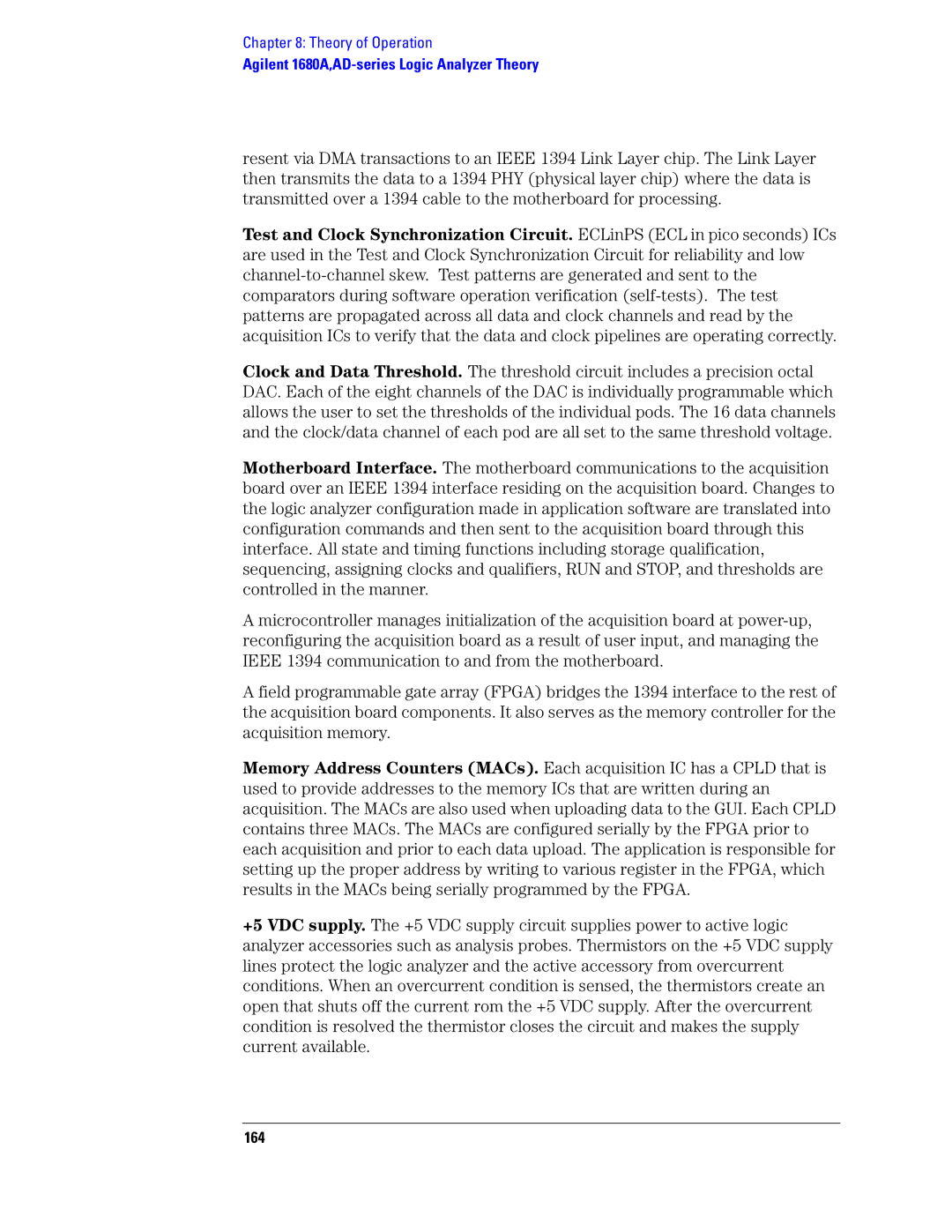Chapter 8: Theory of Operation
Agilent
resent via DMA transactions to an IEEE 1394 Link Layer chip. The Link Layer then transmits the data to a 1394 PHY (physical layer chip) where the data is transmitted over a 1394 cable to the motherboard for processing.
Test and Clock Synchronization Circuit. ECLinPS (ECL in pico seconds) ICs are used in the Test and Clock Synchronization Circuit for reliability and low
Clock and Data Threshold. The threshold circuit includes a precision octal DAC. Each of the eight channels of the DAC is individually programmable which allows the user to set the thresholds of the individual pods. The 16 data channels and the clock/data channel of each pod are all set to the same threshold voltage.
Motherboard Interface. The motherboard communications to the acquisition board over an IEEE 1394 interface residing on the acquisition board. Changes to the logic analyzer configuration made in application software are translated into configuration commands and then sent to the acquisition board through this interface. All state and timing functions including storage qualification, sequencing, assigning clocks and qualifiers, RUN and STOP, and thresholds are controlled in the manner.
A microcontroller manages initialization of the acquisition board at
A field programmable gate array (FPGA) bridges the 1394 interface to the rest of the acquisition board components. It also serves as the memory controller for the acquisition memory.
Memory Address Counters (MACs). Each acquisition IC has a CPLD that is used to provide addresses to the memory ICs that are written during an acquisition. The MACs are also used when uploading data to the GUI. Each CPLD contains three MACs. The MACs are configured serially by the FPGA prior to each acquisition and prior to each data upload. The application is responsible for setting up the proper address by writing to various register in the FPGA, which results in the MACs being serially programmed by the FPGA.
+5 VDC supply. The +5 VDC supply circuit supplies power to active logic analyzer accessories such as analysis probes. Thermistors on the +5 VDC supply lines protect the logic analyzer and the active accessory from overcurrent conditions. When an overcurrent condition is sensed, the thermistors create an open that shuts off the current rom the +5 VDC supply. After the overcurrent condition is resolved the thermistor closes the circuit and makes the supply current available.
